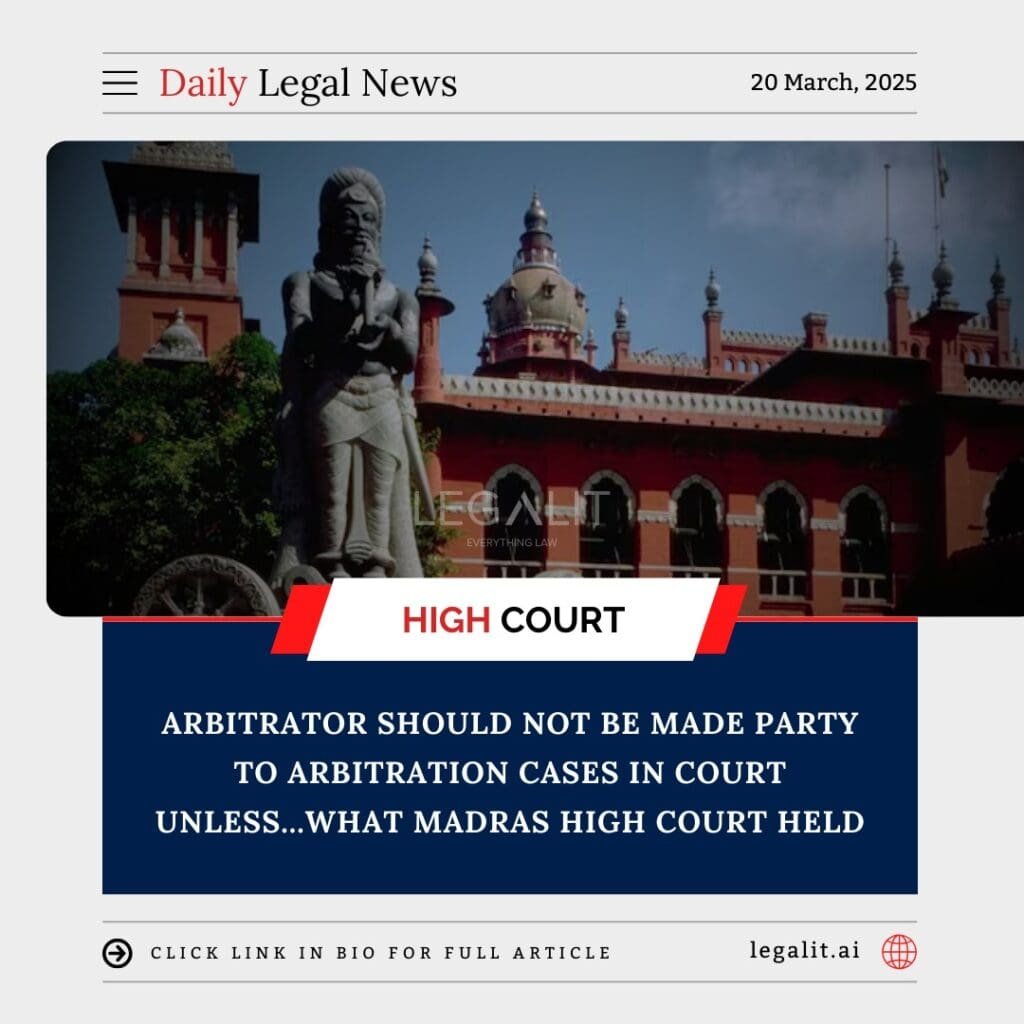
Background
The Madras High Court has ruled that an arbitrator should not be made a party to arbitration-related litigation in court unless there are specific and exceptional circumstances that warrant such an inclusion. The ruling came in response to a case where a party sought to implead the arbitrator in court proceedings challenging an arbitral award.
Court’s Observations
- Neutrality of the Arbitrator
- The court emphasized that arbitrators function as neutral adjudicators and their role ends with the delivery of the award.
- Including them in legal proceedings without valid grounds would compromise their impartiality and deter professionals from taking up arbitration roles.
- Limited Scope for Making Arbitrators Parties
- The court clarified that arbitrators can only be made parties in cases where there are allegations of misconduct, fraud, or bias that directly impact the arbitration process.
- Routine challenges to an arbitral award under the Arbitration and Conciliation Act, 1996, do not warrant the inclusion of the arbitrator in court proceedings.
- Burden of Proof on the Claimant
- If a party insists on making the arbitrator a respondent in legal proceedings, they must present concrete evidence of wrongdoing.
- Mere dissatisfaction with the award or procedural grievances do not justify dragging the arbitrator into litigation.
Legal Implications
- Strengthening the Arbitration Framework
- The ruling reinforces the independence of the arbitration process by preventing unnecessary legal entanglements for arbitrators.
- It ensures that arbitration remains an effective alternative dispute resolution mechanism without judicial interference at every stage.
- Setting Precedents for Future Cases
- The judgment sets a precedent for future arbitration-related litigation, making it clear that arbitrators cannot be indiscriminately drawn into post-award disputes.
- Courts across India may rely on this ruling to prevent frivolous impleadment of arbitrators.
- Protection for Arbitrators
- The decision protects arbitrators from undue harassment and legal pressure, which could otherwise discourage experienced professionals from serving in arbitration proceedings.
- It upholds the principle that an arbitrator’s role is limited to adjudication and does not extend to defending their decisions in court unless misconduct is proven.
Conclusion
The Madras High Court’s ruling provides clarity on the role of arbitrators in post-award litigation, ensuring that they are not unnecessarily dragged into court battles. By setting strict conditions for when an arbitrator can be made a party to legal proceedings, the judgment strengthens arbitration as a preferred dispute resolution mechanism and safeguards the neutrality of arbitrators. The decision is expected to influence similar cases across India, reinforcing the independence and credibility of the arbitration process.